Steven Bartlett is the Founder of Social Chain, an entrepreneur, a podcaster and an author. How to become a functioning human is a difficult skill to work out. Should I focus on achieving goals or inner peace? Can I become confident without being arrogant? Thankfully Steven has spent the last 2 years distilling a ton of lessons into his new book, and today we get to go through my favourites. Expect to learn Steven’s equation for unbreakable discipline, the biggest lesson from dealing with mainstream media pile-ons, why there are so few actual practitioners in the world, how to stop being your biggest critic, why your weirdness is the ultimate competitive advantage, how Steven discovered he was riddled with fake ambition and much more…
Category: information science – Page 105

The Dark Side of Urbanization: Light Pollution’s Toll on Bird Migration
Are bright cities making it worse for birds during their migrations? Find out here!
A recent study published in Nature Communications examines how increased levels of artificial light, specifically in urban areas, has contributed to increased bird deaths during their annual migrations. This study comes as hundreds of birds were killed after colliding with a Chicago building, and despite a 2021 study recommending that reduced building lights would reduce bird collisions by 60 percent. This recent study holds the potential to help scientists and the public better understand how rapidly expanding urban areas are impacting bird migration and their safety.
For the study, the researchers used the Next Generation Radar (NEXRAD), which is jointly operated by the U.S. Air Force, Federal Aviation Administration, and the U.S. National Weather Service, to track bird migration stopover density during spring (March 15 to June 15) and fall (August 15 to November 15) seasons between 2016 and 2020. After analyzing more than 10 million radar observations, the researchers found that light pollution was the second-highest ranked reason for birds stopping for breaks out of 49 reasons measured for the study, with the top reason being elevation.
“Cities pose multiple risks to migrating birds,” said Dr. Geoff Henebry, who is a professor at the Center for Global Change and Earth Observations at Michigan State University and a co-author on the study. “They also offer resources for the tired birds to rest and refuel. Our study is notable in that it combines big data – and a lot of processing – from the weather surveillance radar network with big data from multiple spaceborne sensors to address key questions regarding the influence of urban areas on bird migration.”
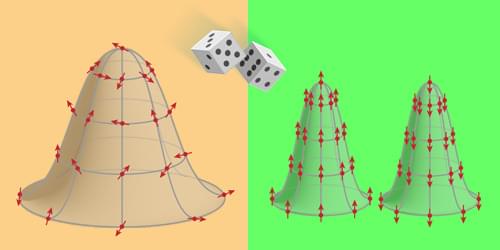
Might There Be No Quantum Gravity After All?
A proposed model unites quantum theory with classical gravity by assuming that states evolve in a probabilistic way, like a game of chance.
Physicists’ best theory of matter is quantum mechanics, which describes the discrete (quantized) behavior of microscopic particles via wave equations. Their best theory of gravity is general relativity, which describes the continuous (classical) motion of massive bodies via space-time curvature. These two highly successful theories appear fundamentally at odds over the nature of space-time: quantum wave equations are defined on a fixed space-time, but general relativity says that space-time is dynamic—curving in response to the distribution of matter. Most attempts to solve this tension have focused on quantizing gravity, with the two leading proposals being string theory and loop quantum gravity. But new theoretical work by Jonathan Oppenheim at University College London proposes an alternative: leave gravity as a classical theory and couple it to quantum theory through a probabilistic mechanism [1].
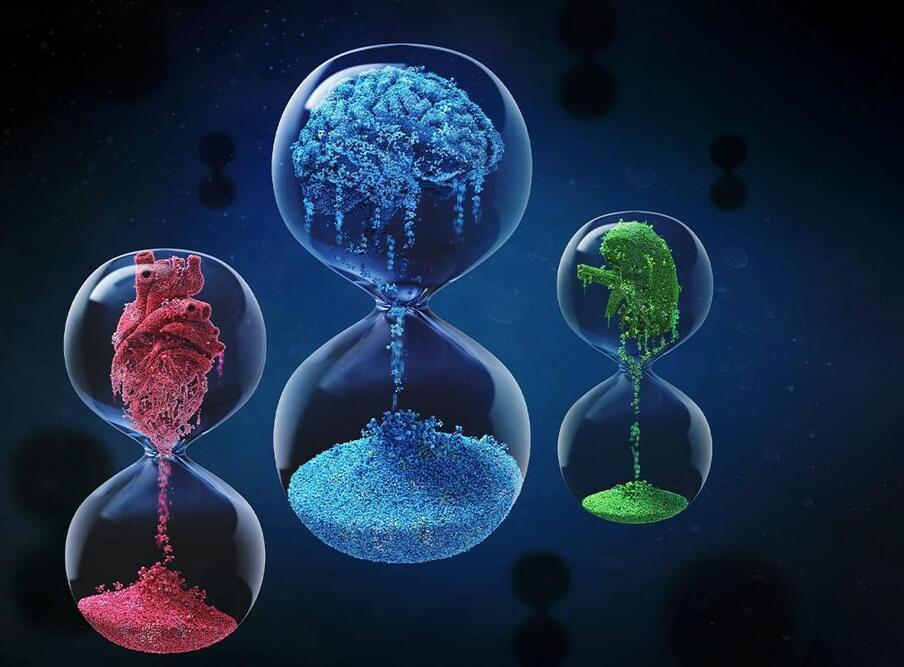


The True Value Of Data And AI In Human Resources
As we venture deeper into the digital era, the scope and possibilities of data and artificial intelligence (AI) in human resources (HR) are expanding at an unprecedented rate.
Johnson & Johnson deployed an AI-based writing tool, Textio, to identify unconscious bias in their job listings. Upon identifying a masculine tilt in the language of many of their job postings, they made some AI-driven adjustments that led to a 9% uptick in female applicants.
Unilever employs AI to streamline the initial stages of its recruitment process. Candidates are asked to play a number of games that test their logic, aptitude, reasoning, and appetite for risk. Then the HR team uses machine learning algorithms to assess candidates’ suitability for the role they have applied for, by matching their profiles against previously successful employees. This approach has not only improved the efficiency of Unilever’s recruitment process but also provided a more engaging candidate experience.
Data and AI are more than just buzzwords — they are the drivers of meaningful, beneficial change within HR. As businesses move forward in this digitally connected world, prioritizing the three HR domains we’ve discussed above can create a significant difference in achieving strategic goals and building a work environment where employees thrive.
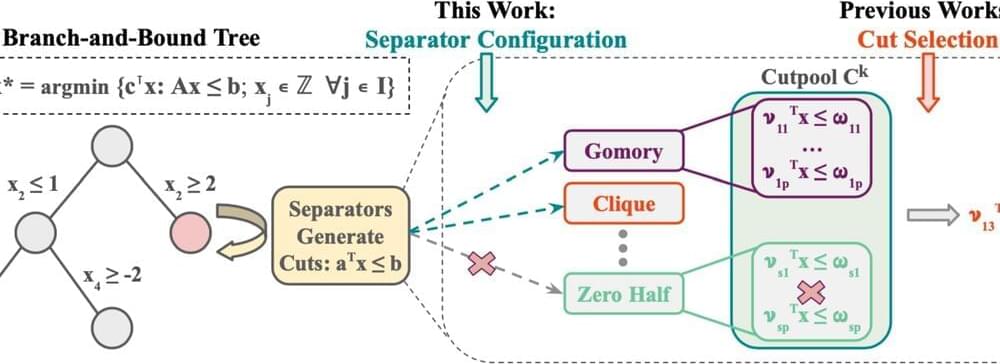
AI approach offers solutions to tricky optimization problems, from global package routing to power grid operation
While Santa Claus may have a magical sleigh and nine plucky reindeer to help him deliver presents, for companies like FedEx, the optimization problem of efficiently routing holiday packages is so complicated that they often employ specialized software to find a solution.
This software, called a mixed-integer linear programming (MILP) solver, splits a massive optimization problem into smaller pieces and uses generic algorithms to try and find the best solution. However, the solver could take hours—or even days—to arrive at a solution.
The process is so onerous that a company often must stop the software partway through, accepting a solution that is not ideal but the best that could be generated in a set amount of time.
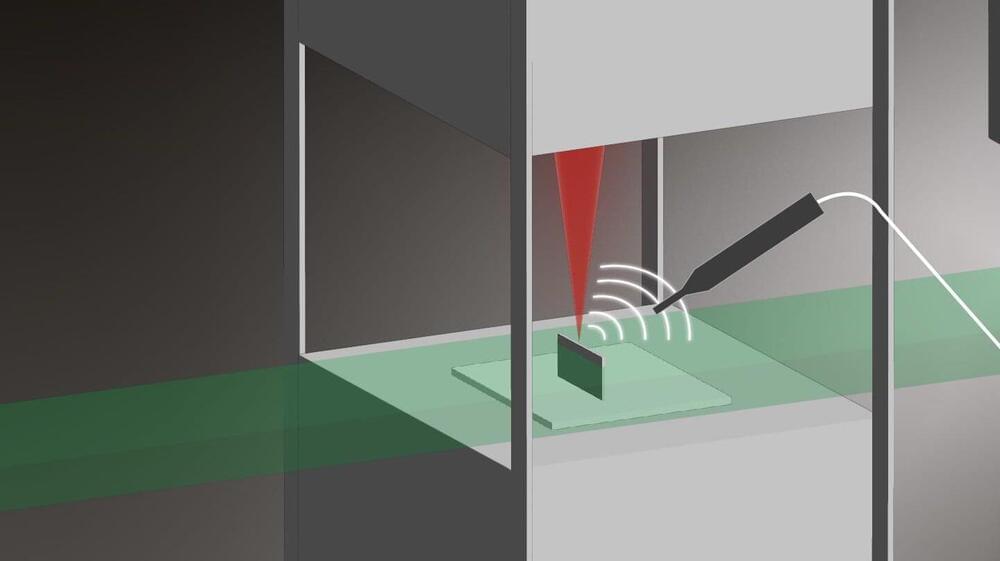
Laser additive manufacturing: Listening for defects as they happen
Researchers from EPFL have resolved a long-standing debate surrounding laser additive manufacturing processes with a pioneering approach to defect detection.
The progression of laser additive manufacturing —which involves 3D printing of metallic objects using powders and lasers—has often been hindered by unexpected defects. Traditional monitoring methods, such as thermal imaging and machine learning algorithms, have shown significant limitations. They often either overlook defects or misinterpret them, making precision manufacturing elusive and barring the technique from essential industries like aeronautics and automotive manufacturing.
But what if it were possible to detect defects in real-time based on the differences in the sound the printer makes during a flawless print and one with irregularities? Up until now, the prospect of detecting these defects this way was deemed unreliable. However, researchers at the Laboratory of Thermomechanical Metallurgy (LMTM) at EPFL’s School of Engineering have successfully challenged this assumption.
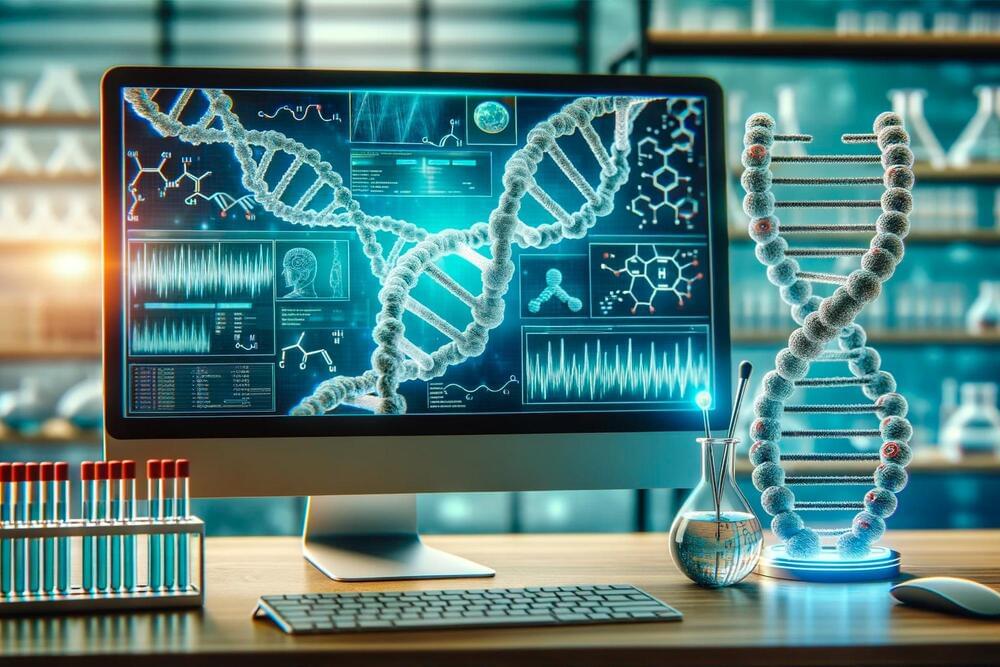
CRISPR’s Hidden Universe: FLSHclust Algorithm Unlocks Secret Gene Modules
Researchers using the new FLSHclust algorithm discovered 188 unique CRISPR-linked gene modules, including a novel type VII CRISPR-Cas system, in a massive protein database. This breakthrough enhances our understanding of CRISPR systems and their potential in biotechnological innovations.
Researchers have developed a new algorithm, FLSHclust (“flash clust”), leading to the discovery of 188 rare and previously unknown CRISPR-linked gene modules. This includes a novel type VII CRISPR-Cas system found among billions of protein sequences. The findings of this approach offer new possibilities for exploiting CRISPR systems and exploring the vast diversity of microbial proteins.
CRISPR’s Growing Impact in Biotechnology.
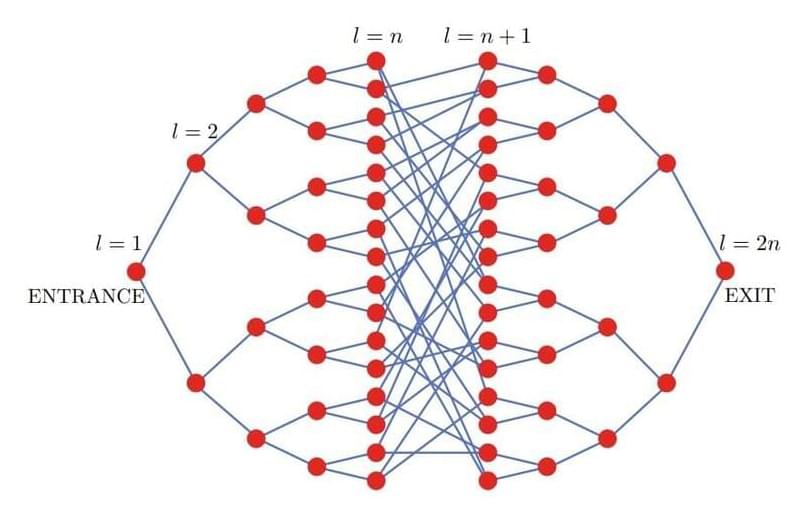
A new quantum algorithm for classical mechanics with an exponential speedup
Quantum computers promise to solve some problems exponentially faster than classical computers, but there are only a handful of examples with such a dramatic speedup, such as Shor’s factoring algorithm and quantum simulation. Of those few examples, the majority of them involve simulating physical systems that are inherently quantum mechanical — a natural application for quantum computers. But what about simulating systems that are not inherently quantum? Can quantum computers offer an exponential advantage for this?
In “Exponential quantum speedup in simulating coupled classical oscillators”, published in Physical Review X (PRX) and presented at the Symposium on Foundations of Computer Science (FOCS 2023), we report on the discovery of a new quantum algorithm that offers an exponential advantage for simulating coupled classical harmonic oscillators. These are some of the most fundamental, ubiquitous systems in nature and can describe the physics of countless natural systems, from electrical circuits to molecular vibrations to the mechanics of bridges. In collaboration with Dominic Berry of Macquarie University and Nathan Wiebe of the University of Toronto, we found a mapping that can transform any system involving coupled oscillators into a problem describing the time evolution of a quantum system. Given certain constraints, this problem can be solved with a quantum computer exponentially faster than it can with a classical computer.